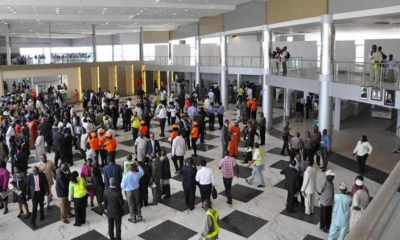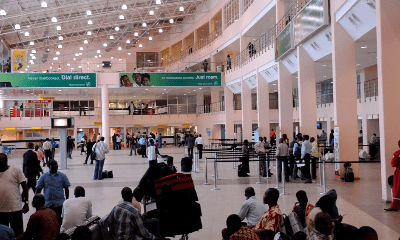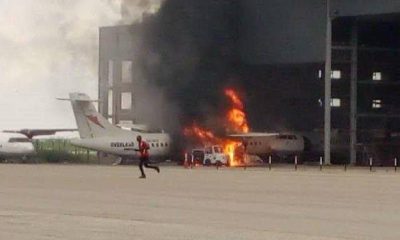columns
Airport Concession: Whither The Way Forward

By Adeolu Olatunji
Barring any last minute twist, the Federal government may have concluded plans to toe the path of airport concession in the country.
This certainly is not unconnected with the many positives that are derivable from the system – a situation which hitherto was unpopular among policy makers in the sector and as such, had suffered untold neglect and or outright rejection particularly from those who ought to know better.
No doubt, it is gratifying to hear from industry watchers, stakeholders – people who now reel out the undisputable advantages of allowing private initiatives to take centre stage in the nation’s aviation industry; and why governments at all levels must support this laudable initiative and ultimately see to its logical formulation and eventual take-off.
But beyond the hues and cries by pro-concession campaigners, it remains to be seen how government intends to go about it; which model it intends to follow and or adopt without losing focus on the essence of such intervention. Worthy of note, also, is the threat posed by unions in the industry – people who have maintained unbridled hatred for the system, a thing other nations of the world have utilised to their own advantage.
To this end, the first ever Public Private Partnership (PPP) arrangement to have been put in place in the country, that is, concession of the domestic wing of the Murtala Muhammed Airport, MMA2, has endured untold assault and sabotage. No doubt, there have been deliberate moves geared to bring the facility to its knee.
These, analysts have attributed to inconsistency in policy formulations and execution; allowance of anti-concession posture among government officials among others. In practical terms, how would the nation’s economy move forward in an atmosphere where genuine and sensitive business policy of this nature are not allowed to thrive? Can there be any meaningful development where supposed government officials discreetly put up structures to corrode whatever effort government is taking to make the nation’s economy work?
Why would such a virile business option be subjected to the whims and caprices of saboteurs – the very set of people who would never see anything good in a system once it does not align with their hard, archaic stance which usually are never in the interest of the general public.
Many of the experts who were worried by the state of all the government-managed airports across the country, said the only guaranty for continued survival of the weather-beaten airports dotting the landscape of the country is concession. Although some of them have raised some pertinent questions about the proposed idea, it was obvious that private investors are the best managers of any government enterprise that is established for profit-making, as exemplified by the managers of MMA2.
The thinking in some quarters, however, are that – why it is safe and totally a welcome development to concession the nation’s airports, what is the Federal Government doing on some pending issues regarding the concession of Murtala Muhammed Airport Terminal Two, MMA2 to Bi-Courtney Limited? For how long would the government continue to pretend and not ever ready to face fact and address issues frontally?
The unfortunate situation of MMA2 concession, according experts, is a burden on its own and it is enough to scare away potential investors. This is part of the reasons analysts have always clamoured for workable policy framework to drive the system – the type that can stand the test of time; the very type that would remain valid through successive administrations. And never the type where sensitive business policies are determined, allowed to be managed and controlled by vested interests – especially from the very people who over the years are the architects of the not-too-impressive performance of the sector, in terms of contribution to the nation’s Gross Domestic Product (GDP).
A serious nation with genuine desire to make meaningful impact in one of its critical sectors cannot afford to be doing the same thing year in, year out and expect different result. The fact still remains that government has no business running businesses.
All that is required is for government through its agencies to provide the much needed environment and support vis-a-vis supervision for businesses to thrive. They are to ensure policy thrusts of government are clearly defined, planned and well executed; and that there is water-tight policy framework which must be adhered to religiously.
Without these indices in place, the nation may be in for another round of turbulence in the nation’s volatile aviation industry.
-

 News4 days ago
News4 days agoUpdated: Oyo Police Parade Arrested Yoruba Nation Agitators
-

 News3 days ago
News3 days agoJust In: Adeleke Appoints Former Osun Commissioner For Finance, Bolorunduro Chairman Of Living Trust Mortgage Bank
-

 News4 days ago
News4 days ago‘21 Chibok Girls Return With 34 Kids; 48 Parents Die Of Trauma’
-

 News1 day ago
News1 day agoBreaking: JAMB Directs CBT Centres To Arrest Parents Found Near Facilities During UTME Exercise















